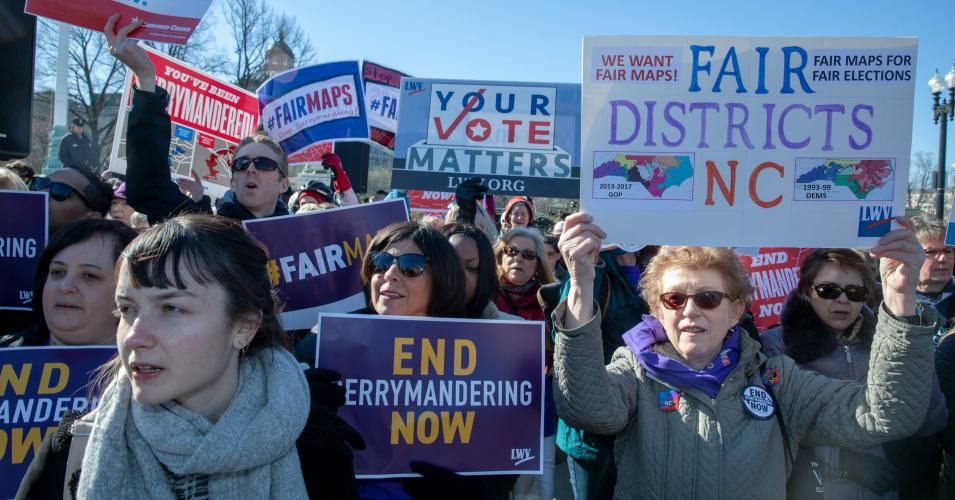KFF/theGrio Survey of Black Voters
Black voters are also concerned about electoral integrity. While a large majority are at least somewhat confident that their own vote will be accurately counted in November, seven in ten are concerned about voter suppression interfering with a fair and accurate election in their state. Half say they have experienced waiting in long lines at their polling place in the past, and one in five have experienced potential voter suppression such as having their registration or identification questioned. Younger Black voters and those who have experienced potential voter suppression in the past are less confident that their vote will be accurately counted this November.
Black Voters Generally Confident Their Vote Will Be Counted, But Concerned About Voter Suppression
Black voters are generally confident that their vote will be accurately counted this November. A large majority (84%) of Black voters say they are at least “somewhat” confident their vote will be accurately counted in this November’s election, including more than four in ten (45%) who say they are very confident. However, younger voters under age 50 are less likely to feel very confident compared to their older counterparts (37% vs. 55%), and about one in five younger Black voters (22%) say they are “not too confident” or “not at all confident” that their vote will be counted accurately.
Seven in ten Black voters are worried about voter suppression and almost half are worried about voter fraud interfering with a fair and accurate election in their state this November. Three in four Black voters who are Democrat or lean Democrat say they are worried about voter suppression, compared to about half (48%) of their Republican counterparts. Conversely, Black voters who are Republican or lean toward the party (64%) are more likely than Black Democrats/leaners (42%) to say they are worried about voter fraud. Black voters of all ages are equally likely to express worry about voter suppression, but there is an age gap on concerns about fraud. Half of Black voters under age 50 say they are very or somewhat worried about voter fraud, compared to 38% of voters over 50.
About half of Black voters say they have experienced waiting in long lines at their polling place, while one in five report experiencing acts of potential voter suppression, such as having their voter registration questioned. Nearly half (46%) of Black voters say they have experienced waiting in long lines at their polling place in the past. In addition, small but important shares report experiencing forms of potential voter suppression, including 12% who say they had their voter registration questioned, 11% who say they requested a mail-in ballot but it never arrived or arrived too late, 6% who were told they didn’t have the correct identification, and 5% who say they had their mail-in ballot rejected. Overall, one in five Black voters say they have experienced at least one of these things.
Experiences with potential voter suppression may impact Black voters’ confidence in the electoral process overall, though the survey does not suggest that it will decrease turnout this November. About a third (32%) of Black voters who have experienced potential voter suppression in the past say they are “very confident” their vote will be accurately counted this fall, compared to a larger share of those who have not experienced voter suppression (48%). However, at this point there is no evidence in the survey that these experiences will suppress turnout in November: these two groups are about equally likely to say they are absolutely certain to vote in the upcoming midterm (60% and 65%, respectively) and that they are more motivated to vote this year compared to previous elections (56% and 50%, respectively).
Majorities of Black voters say gerrymandering, limiting early voting, and voter ID laws are problems for Black representation in U.S. politics, with larger shares identifying gerrymandering and limiting early voting as major problems. Majorities of Black voters say these things are at least minor problems for Black representation in U.S. politics, with the largest share identifying gerrymandering as a major problem (64%), followed by limiting early voting (55%) and voter ID laws (39%). On all three issues polled, Black Democrats and those who lean Democratic are more likely to say these are problems than Republicans and those who lean toward the Republican party.
Majority Of Black Voters See Gerrymandering, Limiting Early Voting, And Voter ID Laws As A Problem When It Comes To Black Representation
Thinking about our current political system, how much of a problem, if at all, are each of the following when it comes to Black representation in U.S. politics?
This article originally appeared at KFF.org, October 18th, 2022.



